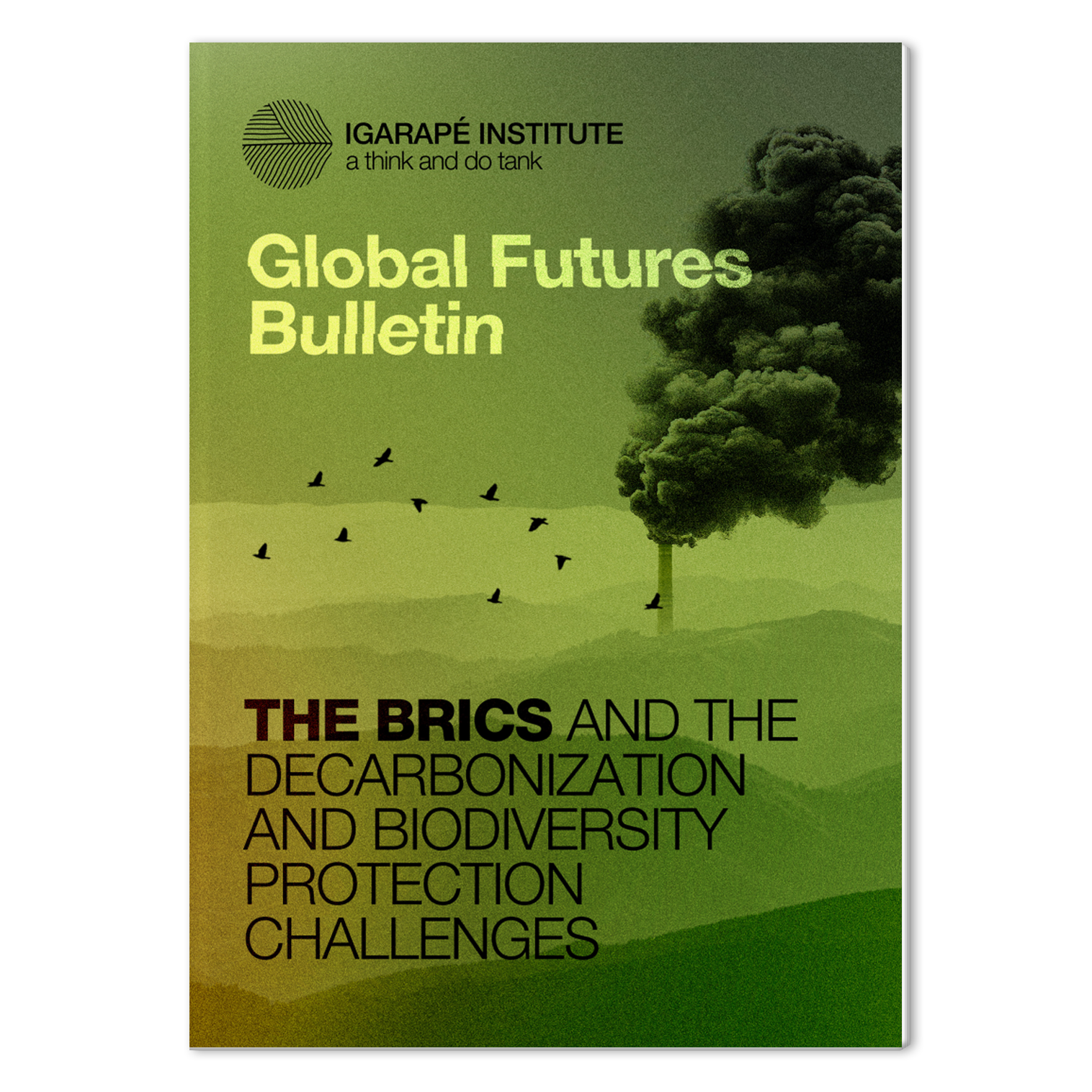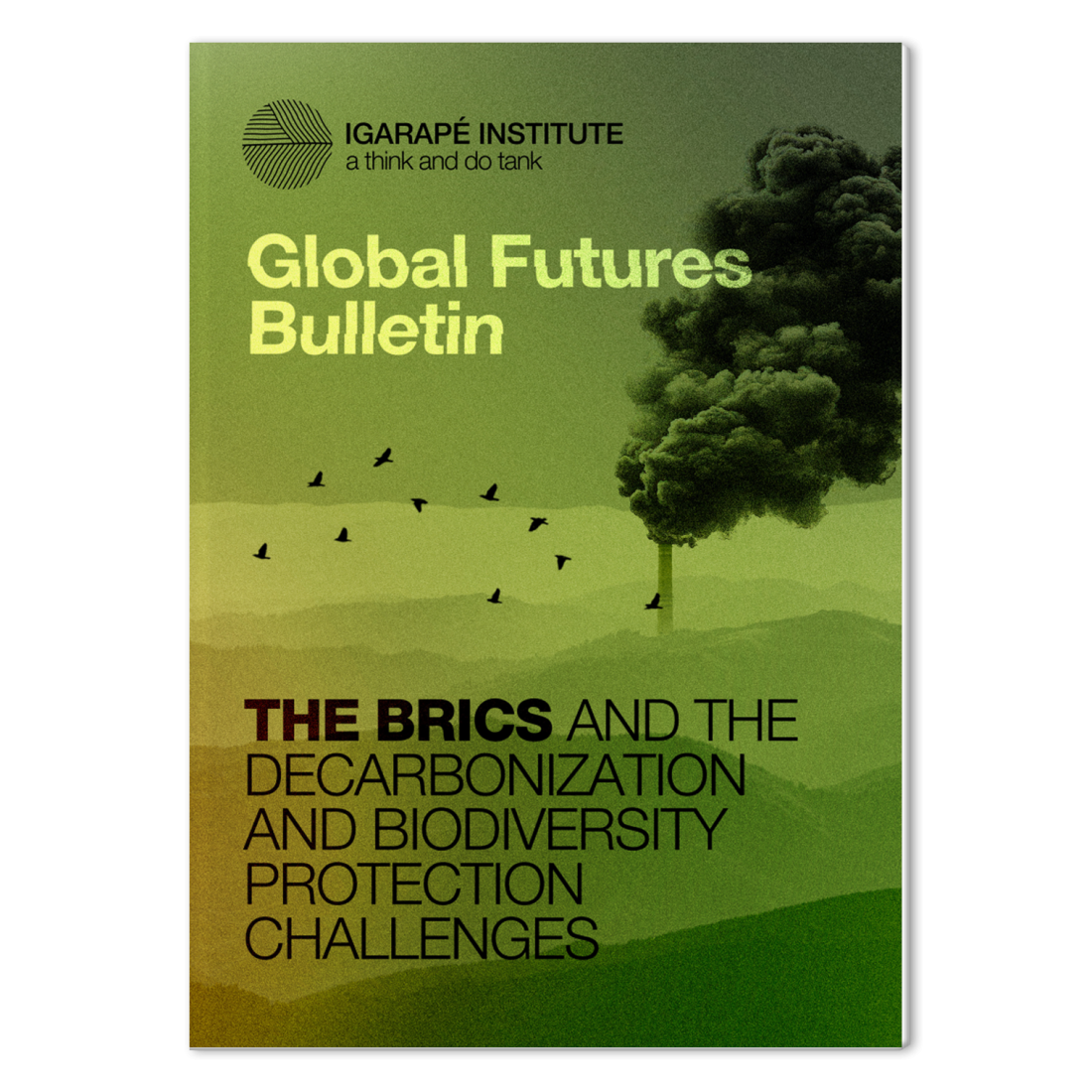Global Futures Bulletin: The BRICS and the Decarbonization and Biodiversity Protection Challenges

The world faces an unprecedented convergence of environmental crises – climate change, pollution, and biodiversity loss – that collectively threaten the planet’s ecological balance and humanity’s future. Reversing the Triple Planetary Crisis necessitates urgent and coordinated action across all sectors and countries, accelerating the transition to low-carbon economies while protecting biodiversity are key challenges for the coming years.
Countries that have joined the BRICS in its inception (Brazil, Russia, India, China, and South Africa) are increasingly an important geopolitical force in current global politics, and their individual and collective action is key to the success of concerted global action. The group’s recent expansion – BRICS+ includes Egypt, Ethiopia, Iran, and the United Arab Emirates (UAE), Indonesia joining in 2025 and Saudi Arabia finally formalizing its membership – offers an opportunity to boost the role of their New Development Bank (NDB) in bridging climate, biodiversity, and development finance, and aim for greater policy coherence for concerted global action across these agendas. Combined, BRICS countries are not only biodiversity and energy-rich but also contribute to a large share of greenhouse gas (GHG) emissions.
This Strategic Paper examines the role of the expanded BRICS+ and explores whether and how this “mini-multilateral” grouping, with its considerable human and technological capacity, can address two major global challenges: accelerating decarbonization and protecting biological diversity. The discussion is framed around the opportunities and challenges faced by the member countries to increase their ambitions and become leading voices in these agendas – not only for BRICS countries (some of which are among the most biodiverse in the world) but also for the wider international community.
Without a strong commitment by BRICS countries (individually and as a group) the world will fail to accelerate action on decarbonization and biodiversity protection.
Read the publication
Learn more about this topic in the studies Accelerating Inclusive Global Cooperation and Brasil e o Sistema das Nações Unidas: desafios e oportunidades na governança global



